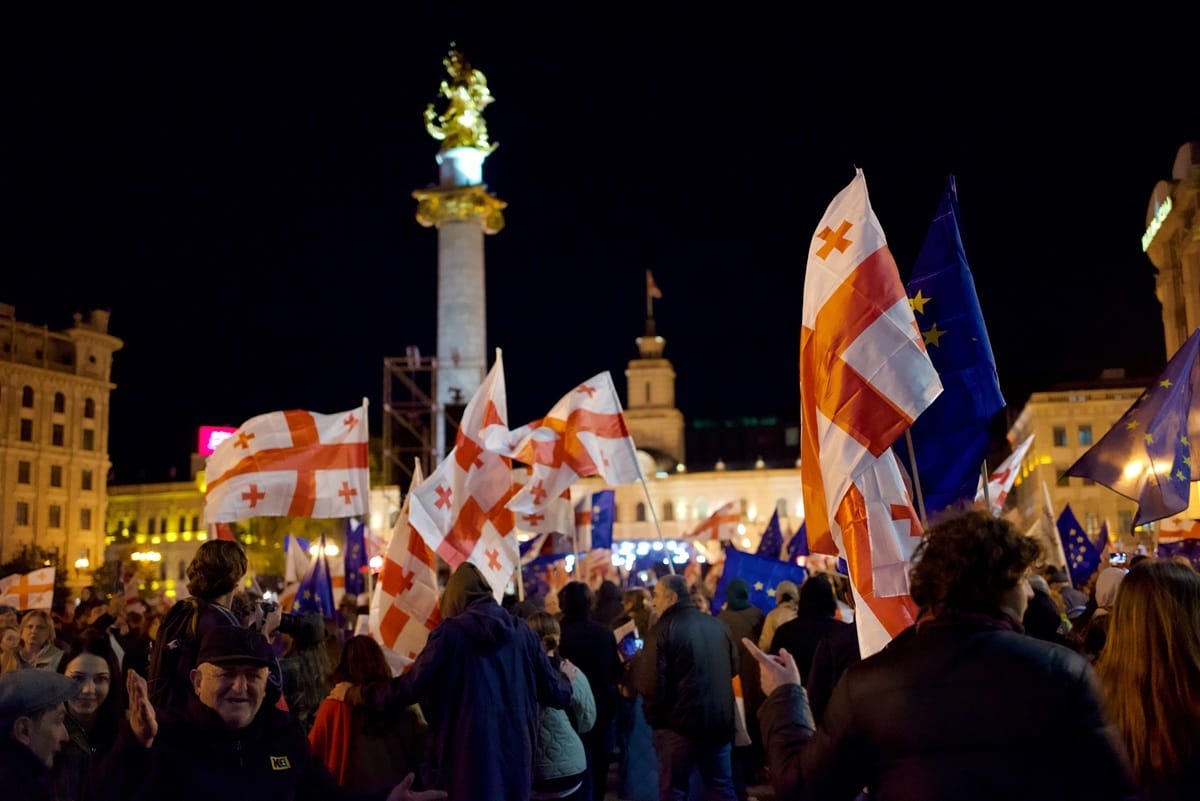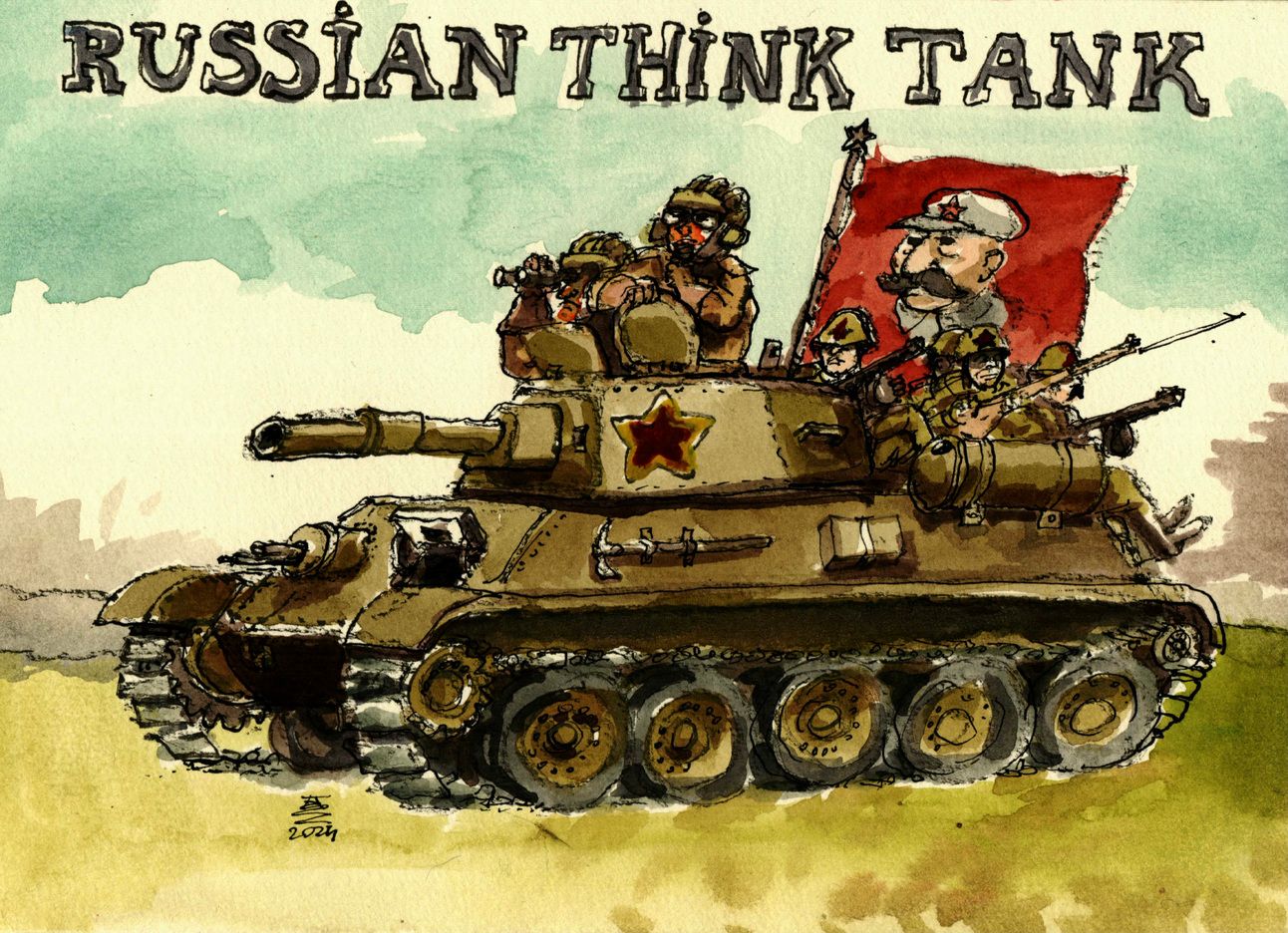DEAR READER,
Last week’s chatter in the region was all about the 2025 EU Enlargement Package. What stood out most was the report’s blunt assessment of Georgia: the country has “further derailed from the EU path” and now resembles a candidate “in name only.” To unpack what this really means for the pro-European Georgian society (and why Brussels can’t afford to look away either) we asked George Melashvili, political scientist, lecturer, and president of the Europe-Georgia Institute, to give us a deep dive on the topic. George also runs Isari24, an English-language newsletter for anyone following Georgia’s political landscape. Highly recommended if you want to stay in the loop! Sign up here.
Enjoy reading this week’s “brief”!
— Giorgi Beroshvili, Editor
TOP STORIES OF THE WEEK
🇪🇺 / 🇦🇲 The European Union has formally delivered an action plan for visa-free travel to Armenia. The document outlines the reforms required for citizens to enter the Schengen Area without visas. The plan was presented in Yerevan by Johannes Luchner, Deputy Director-General for Migration and Home Affairs of the European Commission, during talks with Interior Minister Arpine Sargsyan, who called it a “key stage in strengthening trust and cooperation” with Brussels. The roadmap focuses on border management, anti-corruption, document security, and human rights protections. It follows the launch of official talks in September 2024 and comes amid Armenia’s pivot toward Europe, including a recent law initiating the country’s application for EU membership. Brussels has stressed that all benchmarks must be met before visa liberalisation can take effect.
🇲🇩 Moldova has moved to close the Russian House in Chișinău. The country has branded it as an instrument of hybrid influence used by Moscow to undermine the country’s sovereignty. The decision cancels a 1998 cultural cooperation agreement with Russia, set to expire in 2026, pending parliamentary approval. Culture Minister Christian Jardin said the center’s activities were “not at all cultural,” accusing it of covert operations linked to the Kremlin’s destabilisation efforts. The Russian House operates under Rossotrudnichestvo, a state agency promoting Russian culture and language abroad. Moscow condemned the move as antagonism toward Russia, but Chișinău (which has also banned Russian media and reduced gas imports) says it’s safeguarding national security amid continued Russian interference. Similar Russian centres have been shut down in Romania and Azerbaijan since the invasion of Ukraine.
🇧🇬 Bulgaria launches inquiry into alleged Soros-linked foreign influence. Bulgaria’s parliament has voted to create a commission investigating NGOs and companies allegedly tied to philanthropist George Soros and his son Alexander. Critics say this echoes Kremlin-style attacks on civil society. The inquiry was pushed by oligarch and MP Delyan Peevski’s Movement for Rights and Freedoms – New Beginning alongside nationalist and pro-Russian parties, while the ruling GERB party largely abstained. Peevski, who is sanctioned under the US Global Magnitsky Act, has recently revived anti-Soros rhetoric, accusing liberal groups of spreading “gender ideology” and foreign interference. Human rights organisations condemned the commission as an attempt to intimidate pro-democracy NGOs such as the Open Society Foundation, which has long supported media and educational initiatives in Bulgaria.
🇺🇸 / 🇭🇺 Trump granted Hungary a one-year exemption from Russian oil sanctions. US President Donald Trump welcomed Hungarian Prime Minister Viktor Orbán to the White House on Friday. The leaders discussed Russia’s war in Ukraine, potential peace talks with Putin, and Hungary’s energy dependence on Russian oil. Trump indicated he might grant Hungary an exemption from U.S. sanctions on Russian oil and gas, citing the country’s landlocked geography and limited access to alternative sources. Orbán defended Hungary’s energy ties with Moscow and touted a potential “golden age” in US-Hungary relations. The meeting also touched on trade issues, including Trump’s tariffs on European goods affecting Hungary’s car industry. Both leaders suggested a Budapest summit with Putin could be a venue for potential peace talks. Orbán argued that most governments favour continuing the war and questioned whether Ukraine could achieve victory on the front line. Viktor Orbán criticized the Biden administration saying it had “ruined” US-Hungary relations, citing visa restrictions on Hungarian citizens. Also: The US lifted sanctions on pro-Russian Bosnian politician Milorad Dodik.
🇪🇺 / 🇷🇺 The EU confirmed Friday it is banning most multiple-entry visas for Russian citizens. The measure, designed for “close and frequent scrutiny” of applicants, aims to reduce potential security threats amid ongoing drone incidents and sabotage in Europe, the European Commission said. EU diplomats, including Kaja Kallas, emphasised that travel to the EU is “a privilege, not a given,” while Migration Commissioner Magnus Brunner announced enhanced verification and elevated scrutiny for Russian applicants. Russians already holding multiple-entry visas are unaffected, and limited exceptions exist for family members, dissidents, and independent journalists. The move follows a drop in Russian visa approvals from 4 million pre-2022 to around 500,000 annually, though entries rose 10% in 2024 due to high approvals in countries like Hungary, France, Spain, and Italy. The EU also plans to restrict Russian diplomats’ movement across the Schengen Area to counter hostile intelligence activities. Critics, including Yulia Navalnaya and Mikhail Khodorkovsky, argued the policy unfairly targets ordinary Russians rather than the Kremlin.
EXPERT OPINION
Candidate in Name Only

Georgia today occupies an increasingly complex and fragile position in Europe’s political landscape. This position is shaped not only by the government’s departure from democratic norms, but also by the determination and resilience of a society fiercely fighting to save its European future. The recent EU Enlargement Report delivered the clearest institutional assessment yet of the country’s trajectory, stating that Georgia has “further derailed from the EU path” and currently resembles a candidate country “in name only.” This development demonstrates a shift in Brussels’ expectations of Tbilisi. It clearly reflects a growing recognition in high European corridors that the government is becoming more and more detached from the will of Georgian people. The fact they are now acting in fundamentally different directions is also becoming obvious: the captured state may be drifting indeed, but not the nation.
The Georgian Dream regime has, throughout the years, built a very peculiar political environment that deliberately occupies a grey zone between formal democracy and authoritarian consolidation. It preserves the façade of institutional legalistic process while steadily weakening the substance behind it. Formalities and legislative procedures are maintained, but genuine accountability is eliminated and replaced by one-party and one-man rule. Same is true for European aspirations — the rhetoric and toasts are retained, but practical alignment is abandoned, and immense resources are spent to transform Georgia’s dominantly pro-European society into an anti-European one. The result is a system that is authoritarian in design, but ambiguous in form — specifically designed to confuse observers, disorient the public, and limit both external leverage and internal pressure.
A central instrument of this strategy is gaslighting and narrative manipulation. Georgian Dream increasingly relies on sophisticated propaganda and political gaslighting, insisting that critical European assessments are the product of misunderstanding, or malice of the “Global War Party”, the “Deep State”, or “non-European forces within the EU”. The government portrays itself as defending sovereignty and “true European values” against “external meddling”, while framing genuine domestic dissent as orchestrated foreign-made destabilisation. This framing is amplified by drastic media imbalance in favour of the Georgian Dream, reproducing patterns familiar to Viktor Orbán’s Hungary. It constructs a parallel political reality in which facts are endlessly disputed and distorted, accountability is recast as disloyalty, and public trust is systematically corroded. In this artificially manufactured reality, the party and the state are deliberately conflated, and any expression of dissent is treated not as democratic engagement but as treason of the state itself.
Recent developments indicate that this information strategy extends beyond Georgia’s borders. Actors associated with Orbán’s Fidesz and Germany’s AfD appear to have misused procedural avenues in both EU structures and European capitals receiving internal documents, later leaking them to the Georgian Dream. Once received, these documents are selectively misinterpreted and circulated by Georgian Dream as supposed proof of European hostility or institutional bias — an increasingly familiar feedback loop designed to undermine public confidence in the EU itself. These tactics form part of a wider pattern, and recent revelations about Hungarian intelligence attempts to infiltrate the European Commission further underline these concerns. Such tactics also seek to weaponise European institutions and procedures against European aspirations.
This shifts the focus to another challenge: the emergence of “Georgia fatigue” within parts of the EU. After years of political turbulence, some officials and observers have grown weary with Tbilisi’s repeated deviations from European commitments. Yet this fatigue risks conflating the behaviour of authoritarian government with societal will. Georgia is not a country turning away from Europe, but a country whose government is doing so in defiance of its people. Georgia is not a lost cause, but a frontline of Europe — a deeply contested space where the public remains committed to the European project even as the government moves in the opposite direction. Recognising this distinction is essential for Brussels to preserve both its credibility and its moral authority.
And yet, the most striking feature of Georgia’s current crisis is not state repression but societal resilience. For over a year, citizens have maintained peaceful protest — often in the face of intimidation, arrests, provocations, and orchestrated disinformation. Students, academics, journalists, and professionals of all sorts keep gathering on Rustaveli Avenue, demonstrating not only political opposition but democratic discipline. Their persistence has already reshaped international narratives: European partners increasingly speak not of “Georgia” but of “Georgia’s government”, recognising the stark difference between the two.
And as long as this determination endures, Georgia’s European future remains not a relic of past ambition, but a realistic outcome — one defended daily in the streets and increasingly recognised across Europe. Yet, this recognition, however appealing, alone is insufficient. Saving Georgia’s European future now requires more decisive engagement from Brussels: consistent political signalling that differentiates society from its government, robust support for independent media and civil society, and the readiness to deploy targeted measures against those undermining democratic norms. Only through such actions can the EU reinforce the aspirations of the Georgian people and ensure that their struggle is neither isolated nor in vain.
— George Melashvili, President of Europe-Georgia Foundation
As a member of New Eastern Europe, you will enjoy unlimited access to premium articles, our full archive, downloadable PDF issues, and our podcast. Choose digital-only or add print delivery, and join a community that values independent, in-depth analysis.
Learn AI in 5 minutes a day
This is the easiest way for a busy person wanting to learn AI in as little time as possible:
Sign up for The Rundown AI newsletter
They send you 5-minute email updates on the latest AI news and how to use it
You learn how to become 2x more productive by leveraging AI
QUIZ OF THE WEEK
Central and Eastern Europe have quietly become global export leaders in a surprising range of industries. How well do you know what the region is exporting to the world?
Which Eastern European country is one of the largest exporters of sunflower oil in the world?
Poland is the world’s second-largest exporter of this product — only China exports more. What is it?
OPPORTUNITY OF THE WEEK
European Policy Centre — Connecting Europe Fellowship 2026 — A three-month fellowship in Brussels for young professionals from EU enlargement countries to advance research on Europe’s future. Fellows explore how EU policy and enlargement intersect — from rule of law and democratic resilience to green transition, digital governance, and foreign policy — while engaging directly with policymakers and EPC experts. Includes a €2,500/month grant, travel support, mentorship, and publication opportunities. Deadline: December 4, 2025.
ARTICLES OF THE WEEK
CARTOON OF THE WEEK

Who’s there?
Do you want to see more of Andrzej’s drawings? Check out our dedicated gallery page featuring his cartoons here.







